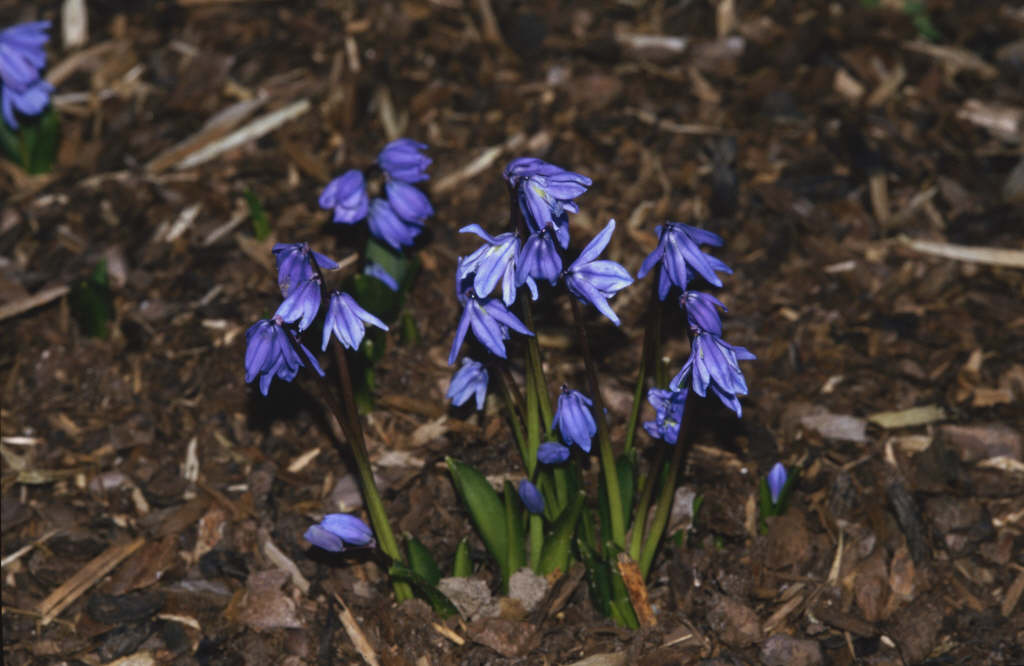Scilla siberica 'Spring Beauty'
Siberian squill 'Spring Beauty'
A dwarf bulb to 15cm in height, forming a basal rosette of of few narrowly oblong leaves, with lax racemes of up to 5 pendent vivid deep blue flowers in spring

Buy this plant
Size
Ultimate height
0.1–0.5 metresTime to ultimate height
2–5 yearsUltimate spread
0–0.1 metreGrowing conditions
Moisture
Moist but well–drained, Well–drainedpH
Acid, Alkaline, NeutralColour & scent
| Stem | Flower | Foliage | Fruit | |
| Spring | Blue | Green | ||
|---|---|---|---|---|
| Summer | ||||
| Autumn | ||||
| Winter |
Position
- Full sun
- Partial shade
Aspect
South–facing or West–facing or East–facing or North–facing
Exposure
Exposed or Sheltered Hardiness
H6Botanical details
- Family
- Asparagaceae
- Native to GB / Ireland
- No
- Foliage
- Deciduous
- Habit
- Tufted
- Potentially harmful
- Ornamental bulbs - not to be eaten. Wear gloves and other protective equipment when handling. Pets: Ornamental bulbs - not to be eaten - see the HTA guide to potentially harmful plants for further information and useful contact numbers
- Genus
Scilla are perennial bulbs with narrow basal leaves and erect stems bearing racemes of star-shaped, flat or bell-shaped flowers which are often blue
- Name status
Accepted
How to grow
Cultivation
Ideal for naturalising in grass or a gravel garden in full sun and a well-drained soil. Plant bulbs two to three times their depth. See bulb cultivation and bulbs: naturalising
Propagation
Propagate by seed, sown in pots in a cold frame when ripe, keep shaded and do not allow to dry out. Alternatively remove offsets in summer. See bulb propagation
Suggested planting locations and garden types
- Rock garden
- Cottage and informal garden
- Flower borders and beds
- Underplanting of roses and shrubs
- Garden edging
Pruning
No pruning required
Pests
Generally pest-free
Diseases
May be susceptible to anther smuts and virus diseases
Love gardening
Sign up to receive regular gardening tips, inspiration, offers and more
View our Privacy Policy
Get involved
The Royal Horticultural Society is the UK’s leading gardening charity. We aim to enrich everyone’s life through plants, and make the UK a greener and more beautiful place.